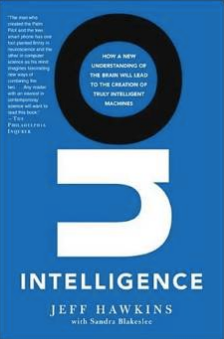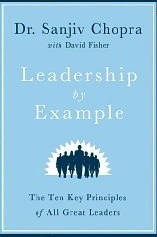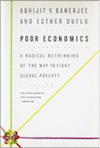Alleviating Poverty in a Profitable Manner
 Imagine you are a very successful hedge fund manager and one night you become inspired by such a worthwhile cause that you quit and do something about it– That’s exactly what happened to Rob Broggi– Industrial Revolution II‘s CEO and founder, a good friend of mine, and a model global citizen.
Imagine you are a very successful hedge fund manager and one night you become inspired by such a worthwhile cause that you quit and do something about it– That’s exactly what happened to Rob Broggi– Industrial Revolution II‘s CEO and founder, a good friend of mine, and a model global citizen.
It all started when Matt Damon, a college buddy from Harvard, invited Rob to an event on the state of Haiti in January 2009. He would have no idea then how the night would change his life. As he learned about the inhumane conditions throughout the country, he became increasingly incredulous. Haiti has a population of only 10 million people, and is as close to the United States as Jamaica is— yet it had gone from the richest colony to the poorest country in the Western Hemisphere in less than 200 years. “This is crazy,” he said to Damon at a dinner following the panel. “How in the world is this small country that is so close to us so poor?” Damon agreed. “You’re right,” he replied. “We need someone to work on this.” Read more 
MIT’s Poverty Action Lab Celebrates Its 10th Anniversary
MIT’s Abdul Latif Jameel Poverty Action Lab (J-PAL) is celebrating its 10th anniversary. To celebrate, J-PAL is hosting a one-day event in Cambridge on December 7, 2013. This event will also be webcast live starting at 9:30 AM EST.
J-PAL is marking the occasion with a day-long series of short talks, videos, and panel discussions from researchers, policymakers, staff, and partners. We will hear of surprising results discovered, key lessons learned, some incredible adventures from the field, and the hard road to evidence-based policy in development.
Over the past decade J-PAL has grown from a single office to a global network of researchers whose 400+ projects span 55 countries.
AGRICULTURE > 34 projects in 15 countries
EDUCATION > 106 projects in 29 countries
ENVIRONMENT & ENERGY >17 projects in 12 countries
HEALTH > 103 projects in 31 countries
FINANCE & MICROFINANCE > 154 projects in 35 countries
LABOR MARKETS > 50 projects in 22 countries
POLITICAL ECONOMY & GOVERNANCE > 93 projects in 26 countries
The Abdul Latif Jameel Poverty Action Lab (J-PAL) was established in 2003 as a research center at the Economics Department at the Massachusetts Institute of Technology. Since then, it has grown into a global network of researchers who use randomized evaluations to answer critical policy questions in the fight against poverty.
J-PAL’s mission is to reduce poverty by ensuring that policy is based on scientific evidence, and research is translated into action. They do this through three main activities:
- Conducting Rigorous Impact Evaluations: J-PAL researchers conduct randomized evaluations to test and improve the effectiveness of programs and policies aimed at reducing poverty.
- Policy Outreach: J-PAL’s policy group analyzes and disseminates research results and builds partnerships with policymakers to ensure that policy is driven by evidence, and effective programs are scaled up.
- Capacity Building: J-PAL equips practitioners with the expertise to carry out their own rigorous evaluations through training courses and joint research projects
Tune in on December 7th, and help celebrate the great work of MIT’s efforts to reduce poverty.
Lifetime Achievement
Please read this interview, particularly if you are affiliated or play an influential role with the funding decision of a non-profit, as it could lead to your non-profit making an even greater impact on its target base.
 Imagine positively impacting millions of lives…impacting a fraction of that number would represent quite a lifetime achievement for many of us – well, the team at J-PAL (MIT’s Poverty Lab) have already done that and are aiming for more (a recent deworming campaign in India reached 17 million children). Iqbal Dhaliwal, the Global Head of Policy at J-PAL, is leading many of these efforts to ensure that global policies and programs to reduce poverty are made more effective.
Imagine positively impacting millions of lives…impacting a fraction of that number would represent quite a lifetime achievement for many of us – well, the team at J-PAL (MIT’s Poverty Lab) have already done that and are aiming for more (a recent deworming campaign in India reached 17 million children). Iqbal Dhaliwal, the Global Head of Policy at J-PAL, is leading many of these efforts to ensure that global policies and programs to reduce poverty are made more effective.
I spoke with Iqbal about the challenge of measuring success and how non-profits can make an even greater impact on their target base.
Iqbal, why did you choose a career in policy development and implementation?
I grew up in Delhi and was always bothered why there were so many people that were so poor. Were they just lazy (a fairly widespread belief among many in the middle class) or were there factors beyond their control? Those questions drove me to study economics at college and then to a career in the Indian civil services to implement many of the state-run development programs that aim at reducing poverty.
Global Poverty
 If someone told you that the money you are about to invest towards an ad campaign will not provide you the necessary ROI metrics, would you still invest? You would likely conduct further market research to fully understand your customer’s requirements/needs and then tailor your investment in such a manner that it will achieve your goals.The same parallel applies to anti-poverty efforts, in which today, aid organizations often don’t apply enough of a data-driven, scientific approach to fully understand the cause and effect of their aid.
If someone told you that the money you are about to invest towards an ad campaign will not provide you the necessary ROI metrics, would you still invest? You would likely conduct further market research to fully understand your customer’s requirements/needs and then tailor your investment in such a manner that it will achieve your goals.The same parallel applies to anti-poverty efforts, in which today, aid organizations often don’t apply enough of a data-driven, scientific approach to fully understand the cause and effect of their aid.
Enter the Abdul Latif Jameel Poverty Action Lab (J-PAL), a network of 64 affiliated professors around the world who are united by their use of Randomized Evaluations (REs) to answer questions critical to poverty alleviation. Started as a center in the department of economics at the Massachusetts Institute of Technology  (MIT), J-PAL has now regional offices in Asia, Africa, Europe and South America and more than 300 projects in 45 countries. J-PAL’s mission is to reduce poverty by ensuring that policy is based on scientific evidence. They do so by conducting rigorous impact evaluations to test and improve the effectiveness of programs and policies aimed at reducing poverty; by building capacity of local development organizations to become better producers and consumers of such evidence; and by informing policymakers of the results of the research so that the most effective, and cost-effective programs can be scaled up.
(MIT), J-PAL has now regional offices in Asia, Africa, Europe and South America and more than 300 projects in 45 countries. J-PAL’s mission is to reduce poverty by ensuring that policy is based on scientific evidence. They do so by conducting rigorous impact evaluations to test and improve the effectiveness of programs and policies aimed at reducing poverty; by building capacity of local development organizations to become better producers and consumers of such evidence; and by informing policymakers of the results of the research so that the most effective, and cost-effective programs can be scaled up.











